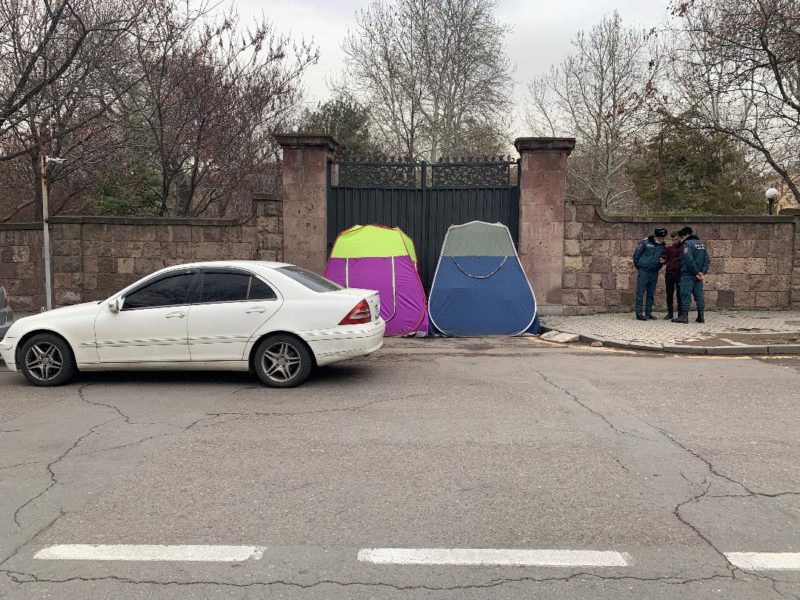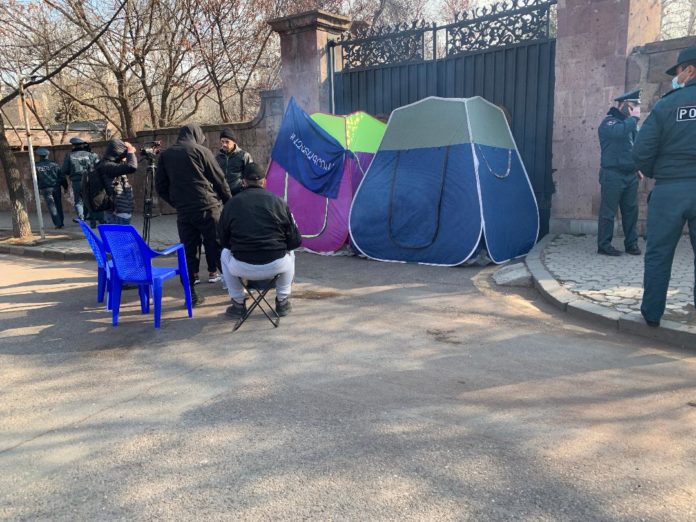YEREVAN – Almost a week since Prime Minister Nikol Pashinyan announced a date for upcoming snap parliamentary elections, pro-government and opposition political parties are debating whether or not to implement a planned electoral code reform in time for the vote scheduled for June 20.
Following months of intrigue, Pashinyan struck a deal with the two parliamentary opposition factions late last week. While the prime minister had dropped hints of his readiness to hold a new vote as early as last December, the format and timeline has remained a subject of much debate. The liberal-leaning Bright Armenia party and business tycoon Gagik Tsarukyan’s Prosperous Armenia agreed not to field rival prime ministerial candidates once the current prime minister resigns in order for the country’s complicated parliamentary mechanism to trigger a snap election. According to Bright Armenia leader Edmon Marukyan, his party’s requirement that Pashinyan reinstate former Chief of the General Staff Onik Gasparyan was withdrawn once the issue became moot — Gasparyan’s replacement, Lieutenant General Artak Davtyan has already taken office.
The scheduled elections are expected to relieve simmering tensions in the country following the defeat against the Turkish and Azerbaijani armies in Artsakh last November. Pashinyan, who rode a wave of popular discontent with the previous administration into power back in 2018, has been facing mounting calls to resign from various segments of Armenian society and the diaspora. Others have pointed to holding fresh elections as a legitimate egress for the prime minister’s party seeking to regain the mandate it lost during the war.
The announcement of fresh elections was not enough to satisfy the demands of the Homeland Salvation Movement — a street opposition alliance largely composed of, and financed by, the former regime deposed in the 2018 Velvet Revolution. This coalition’s leadership instead demands that Pashinyan resign and hand power to their candidate, the septuagenarian mathematician and one-time Prime Minister Vazgen Manukyan who would helm a “caretaker government” for a one-year period before organizing its own elections.
This proposal hasn’t managed to garner much support from the general public however. According to a recent poll commissioned by the International Republican Institute, only 6 percent of voters would definitely trust the Homeland Salvation Movement to lead a transitional government, while 76 percent were opposed to the idea. Analysts say the Movement’s leadership — largely composed of figures considered “tainted” by their involvement in the previous regime — has not resonated well with voters. The IRI poll places this coalition in the low single digits for voting intentions, well behind the governing Civil Contract Party and its allies which command some 30 percent of voting intentions. The match up isn’t much more favorable to these parties when listed individually either.

Still, voter distrust hasn’t dissuaded the Homeland Salvation Movement from blockading Yerevan’s main thoroughfare, Baghramyan Avenue, for almost two months. Tents pitched on the road in an aborted attempt to block access to the Parliament Building were only removed on Tuesday afternoon after the movement’s leadership announced a new strategy to “expand the geography” of their campaign to topple the elected government. Manukyan, the movement’s prime ministerial candidate, who has called the prospects of elections organized under the current government “the most disastrous in history,” has already announced his intention to boycott the vote. The movement’s leadership has also elected to stick to their original demands despite parting ways with its biggest faction, Prosperous Armenia.










